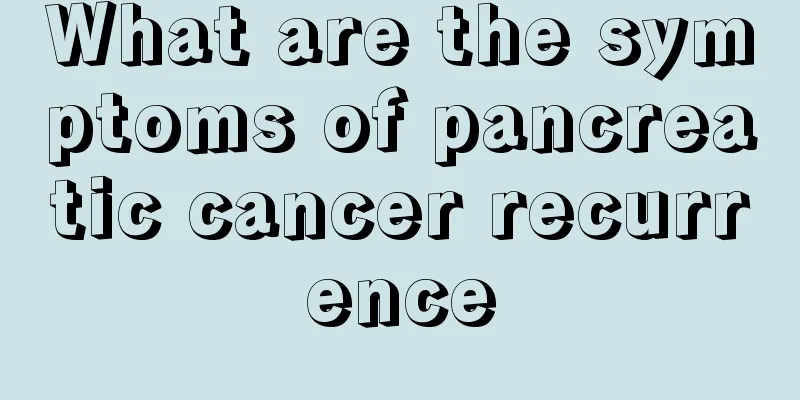Late symptoms of esophageal cancer

|
The symptoms of mid- and late-stage esophageal cancer include: (1) Dysphagia: It is a typical symptom of esophageal cancer. Since the esophageal wall has good elasticity and expansion ability, when obvious dysphagia occurs, the tumor has usually invaded more than 2/3 of the circumference of the esophagus, and is often accompanied by infiltration of the surrounding tissues of the esophagus and lymph node metastasis. Dysphagia is often intermittent at the beginning, and can be aggravated by food blockage or local inflammatory edema, or alleviated by tumor necrosis and shedding or the disappearance of inflammatory edema. However, as the disease progresses, the general trend is progressive and persistent, and its development is generally rapid. Most patients may die within 1 year after the onset of obstruction symptoms if not treated. The degree of dysphagia is related to the pathological type. Stenotic and medullary cases are more severe, while other types are milder. About 10% of patients do not have obvious dysphagia when they seek medical treatment. The severity of dysphagia has no definite relationship with tumor size, surgical resection rate, and survival rate. (2) Obstruction: Severe cases are often accompanied by reflux and continuous vomiting of mucus. This is due to the infiltration and inflammation of esophageal cancer, which reflexively causes increased secretion of esophageal glands and salivary glands. Mucus accumulated in the esophagus can reflux, causing choking and even aspiration pneumonia. (3) Pain: Continuous pain behind the sternum or between the shoulder blades on the back. This may be caused by esophageal cancer invading the esophagus, causing periesophagitis and mediastinitis, but it may also be caused by deep esophageal ulcers caused by tumors. Pain caused by tumors in the lower thoracic segment or cardia may occur in the upper abdomen. Patients with severe pain who cannot fall asleep or who are accompanied by fever are less likely to undergo surgical resection and should be aware of the possibility of tumor perforation. (4) Bleeding: Patients with esophageal cancer may sometimes come to the hospital for treatment due to vomiting blood or black stools. The tumor can infiltrate large blood vessels, especially the thoracic aorta and ribs, causing fatal bleeding. For cases with penetrating ulcers, especially those with CT scans showing tumor invasion of the thoracic aorta, attention should be paid to the possibility of bleeding. (5) Hoarseness: It is often caused by direct invasion of the tumor or metastatic lymph nodes compressing the recurrent laryngeal nerve, but sometimes it can also be caused by laryngitis caused by inhalation inflammation. Indirect laryngoscope can help to identify it. (6) Weight loss and anorexia: Due to obstruction, the patient's food intake is reduced, and the nutritional status is gradually deteriorating. Weight loss and dehydration often occur one after another, but the patient generally still has an appetite. If the patient loses a lot of weight or develops anorexia in a short period of time, it often indicates that the tumor has spread widely. |
<<: Clinical manifestations of esophageal cancer
>>: Pathological types of mid- to late-stage esophageal cancer
Recommend
Complete Wine Knowledge
As we all know, wine is an alcoholic beverage mad...
The back of my head is itchy and there are large pieces of dandruff
Many people may have had this experience: when sc...
What to do if the embryo does not develop well
Every child is the hope and future of a family, s...
How much does surgery for early stage lung cancer cost?
How much does surgery for early-stage lung cancer...
What are the symptoms of late stage nasopharyngeal carcinoma?
Nasopharyngeal carcinoma is one of the most commo...
The efficacy and function of turtle bile
Soft-shell turtle is a relatively precious fish. ...
How long does it take for soy milk poisoning to be cured
For most people, soy milk is a health drink becau...
How to regulate nasopharyngeal carcinoma patients with diet
What diet can patients with nasopharyngeal cancer...
How should lung cancer patients eat? Introduction to the diet method for lung cancer patients
Lung cancer is one of the malignant tumors with t...
Can I eat spinach when I have a cold
Cold is a relatively common disease, so can you e...
The correct way to wear pantyhose
The design features of pantyhose can show women&#...
Metastasis and long-term efficacy of esophageal tumors
One of the basic characteristics of esophageal tu...
Dietary care methods for patients with cardia cancer
The diet of patients with cardiac cancer has alwa...
Can you drink cola and honey together?
Coke is a carbonated beverage that many people li...
What to do if clothes are damp and smelly
In the summer, apart from the hot weather, it is ...









